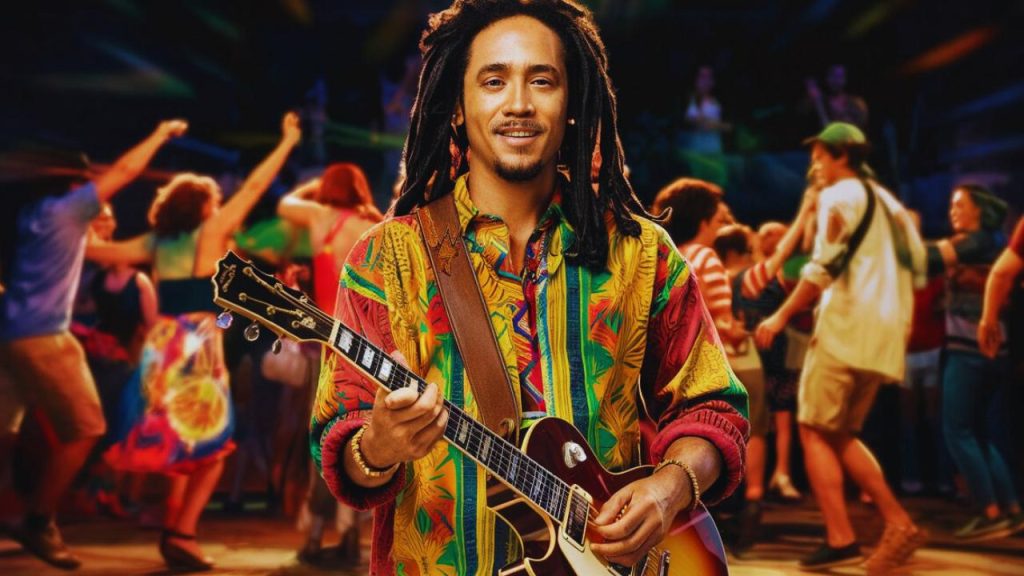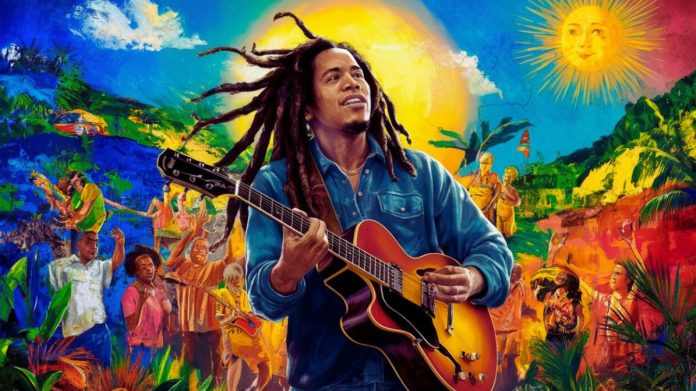Introduction:
Bob Marley, the name itself evokes a symphony of sound: the skanking rhythm guitar of reggae, the soulful wail of his vocals, and lyrics that resonate with themes of social justice, Rastafarian spirituality, and unwavering love. But Bob Marley was more than just a musician.
He was a revolutionary figure who used his music as a weapon to challenge oppression and ignite a global movement.
Early Life and The Wailers:
Born in Nine Miles, Jamaica in 1945, Robert Nesta Marley’s life was deeply intertwined with the struggles of his homeland. Growing up in the Trenchtown shantytown of Kingston, Marley witnessed firsthand the poverty, racism, and political turmoil that plagued Jamaica. These experiences would become the potent fuel for his music.
In 1963, alongside Neville “Bunny” Livingston and Peter Tosh, Marley formed The Wailers, a ska and rocksteady group that quickly rose to prominence in Jamaica. Their early music captured the frustrations and aspirations of the Jamaican working class, becoming anthems for a generation yearning for change.

The Rise of Reggae and Rastafarian Influence:
By the late 1960s, a new sound emerged from the Jamaican underground: reggae. With its slower tempo, hypnotic grooves, and emphasis on social commentary, reggae became the perfect vehicle for Marley’s message. Furthermore, Marley’s conversion to Rastafarianism, a religious movement emphasizing African roots and liberation, infused his music with a spiritual dimension. Songs like “Get Up, Stand Up” and “Redemption Song” became rallying cries for the oppressed, urging unity and resistance against injustice.
International Acclaim and Continued Message:
Marley’s global breakthrough came in the 1970s. Albums like “Catch a Fire” and “Exodus” introduced reggae to the world, captivating audiences with its infectious rhythms and Marley’s powerful vocals. He became a symbol of hope and a voice for the voiceless, performing for millions across the globe.
A Legacy of Unity and Love:
Despite his untimely death from cancer in 1981, Bob Marley’s legacy continues to resonate. His music remains a powerful force for good, promoting unity, love, and social justice. From the beaches of Jamaica to the bustling streets of megacities, his songs serve as a reminder of the power of music to inspire and unite.
Conclusion:
Bob Marley was a more than a musician; he was a cultural icon and a revolutionary force. Through his music, he gave voice to the struggles of the oppressed and championed the fight for equality. His message of unity, love, and social justice continues to inspire millions across the globe, making him a true legend of our time.
FAQ:
Q: What are some of Bob Marley’s most famous songs?
A: Bob Marley’s extensive discography boasts numerous iconic tracks, each offering a glimpse into his multifaceted artistry. “Get Up, Stand Up” remains an anthem for empowerment, urging listeners to rise against oppression. “Redemption Song” delves into themes of liberation and cultural identity, reflecting his Rastafarian beliefs. “No Woman, No Cry,” a poignant ballad, transcends cultural boundaries with its message of love and compassion. “One Love,” a global reggae standard, promotes unity and universal love, a cornerstone of Marley’s message. And of course, “I Shot the Sheriff,” with its infectious groove and captivating story-telling, cemented Marley’s crossover appeal and introduced reggae to a wider audience.
Q: What is Rastafarianism?
A: Rastafarianism, a unique and multifaceted religious movement, emerged in Jamaica during the early 20th century. Central to its tenets is the veneration of Emperor Haile Selassie I of Ethiopia, viewed as the reincarnation of God (Jah). Rastafarians emphasize African roots and cultural identity, rejecting the legacy of colonialism and slavery. Living a simple, natural life is also a core principle, reflected in their emphasis on vegetarianism and ital (natural) living. Rastafarian drumming, with its hypnotic rhythms and spiritual significance, heavily influenced the development of reggae music. Understanding Rastafarianism provides a deeper context to the themes explored in Marley’s music, such as liberation, social justice, and the connection to Africa.
Q: What is the significance of reggae music?
A: Reggae music, born from the Jamaican experience, transcended geographical boundaries to become a global phenomenon. Its origins lie in the late 1960s, evolving from earlier Jamaican genres like ska and rocksteady. Reggae is characterized by its slower tempo, driving skank rhythm guitar, and emphasis on the bassline. Social commentary is woven into the fabric of reggae, with lyrics addressing issues of poverty, inequality, and political oppression. Reggae became a powerful voice for the marginalized, offering not just protest but also messages of unity, cultural pride, and spiritual connection. Bob Marley stands as one of reggae’s most influential figures, using his music to spread its message of social consciousness and global unity.
Q: How can I learn more about Bob Marley?
A: Bob Marley’s enduring legacy continues to inspire exploration. Delving into his extensive discography is a rewarding journey. Albums like “Catch a Fire” and “Exodus” offer entry points to his revolutionary sound and socially charged lyrics. Numerous biographies chronicle his fascinating life story, from his early days in Jamaica to his rise to international stardom. Documentaries like “Marley” provide a visually compelling glimpse into his career and impact. The Bob Marley Museum, located in his former Kingston home, offers a firsthand look into his life and creative space. Websites dedicated to his music and Rastafarianism can provide further insights and resources. By exploring these various avenues, you can gain a deeper appreciation for Bob Marley’s artistry, his unwavering commitment to social justice, and his lasting influence on music and global culture.



